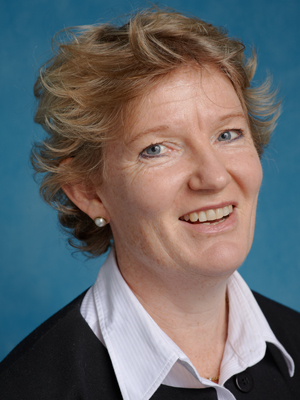 The Faculty is delighted to announce the appointment of Dr Pippa Rogerson as its first Director of the Law Tripos. The decision to create this important new role resulted from the Whole Course Review of the Law Tripos conducted by the Faculty between 2012 and 2014.
The Faculty is delighted to announce the appointment of Dr Pippa Rogerson as its first Director of the Law Tripos. The decision to create this important new role resulted from the Whole Course Review of the Law Tripos conducted by the Faculty between 2012 and 2014.
The Law Tripos is a meaningful academic degree which requires breadth, depth and intellectual rigour. The content of individual Tripos papers is refreshed each year by those teaching it but in 2012 the Faculty determined that the time had come for a comprehensive review of the whole undergraduate course. Adopting a deliberately self-critical and reflective stance, the Faculty set up a Whole Course Review working party to explore searching questions, such as:
- Is the Cambridge law degree stretching and challenging students to achieve their intellectual potential?
- Are ever greater amounts of complex law in each paper imposing too much strain on students?
- Has the law degree at Cambridge kept pace with the changing skill sets of undergraduates and the demands of the professions?
- Does studying law at Cambridge crowd out time for other worthwhile activities that contribute to a rich undergraduate experience: whether law-related such as mooting, or extracurricular sport, volunteering, politics or music?
Factors that led the Faculty to embark on the Whole Course Review included recent articles in newspapers questioning the value of a law degree. An entertaining and challenging debate between Lord Sumption and Professor Graham Virgo, hugely well attended by students, proved that there was wider interest in that question. Additionally, the Legal Education and Training Review (LETR) was being undertaken by the legal profession.
The Review involved extensive consultation, including questionnaires to all members of the Faculty and to all undergraduate students, meetings with student representatives, and examination of several years of course feedback from students. Barristers and solicitors who have employed Cambridge law graduates were consulted. Law courses at other universities were compared to see what we could learn from them.
Many of the findings from the Whole Course Review were very encouraging. Cambridge law students are appreciative of the generous access they have to leading academics in lectures and supervisions and they relish the wide choice of papers available to them. Distinctive features of the Cambridge Law Tripos, such as the opportunity afforded by studying Roman Law to develop a background in a tradition which is useful for later study of comparative and European law, are valued. Major structural change was not therefore justified.
But the Review also found room for improvement in certain areas, and it is those changes that the Faculty is now in the process of implementing. They include two significant structural reforms:
- a new course focusing on legal skills and methodology. Undergraduate students are now arriving at university with much better IT skills but they lack the legal research skills that are crucially important for academic study and, for those who choose it as a career, legal practice. The Faculty’s current Legal IT and Skills course (known as the Freshfields course in recognition of critical funding support by that Law firm for the Faculty’s electronic resources and skills-based teaching), successfully taught for the past 11 years, is being replaced with a course in Legal Skills and Methodology. The new Freshfields course will focus more on caselaw techniques, statutory interpretation and policy in areas which are relevant and important to what the undergraduates are studying at the time. It will be a lively and useful addition to the curriculum.
- the creation of the role of Director of Tripos, to take overall responsibility for the Law Tripos and to complement the Director of the LLM and the Director of the MCL. The Director of Tripos will support the convenors of each paper in their annual review of the syllabus, teaching allocation, lectures and supervisions. By having oversight of the entire system, the Director of Tripos will be able to monitor overall student experience, and will be pivotal in helping the Academic Committee and the Faculty Board to perform the task of keeping course development, curriculum and assessment matters under review.
These structural changes will be complemented by more detailed adjustments on particular matters, such as the introduction of reading time in examinations and an extension of the revision period between the end of lectures and the start of exams.
Overall the Whole Course Review has put the Faculty is in a strong position to ensure that it continues to meet its aim of providing an exceptional University legal education that is stimulating, interesting and intellectually fulfilling.

 Facebook
Facebook  X/Twitter
X/Twitter  Instagram
Instagram  YouTube
YouTube  Flickr
Flickr  LinkedIn
LinkedIn